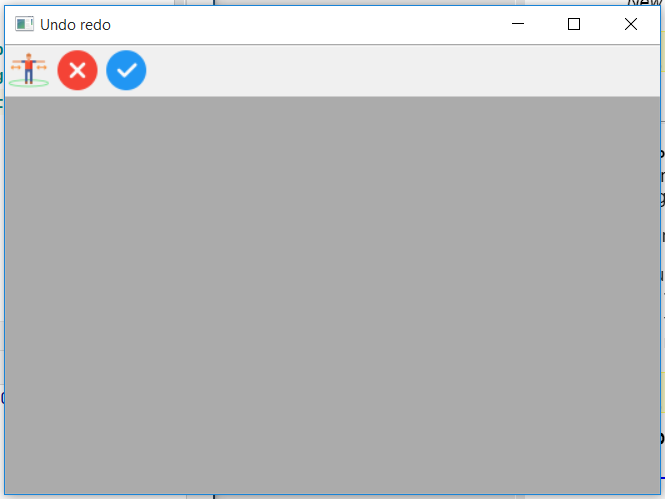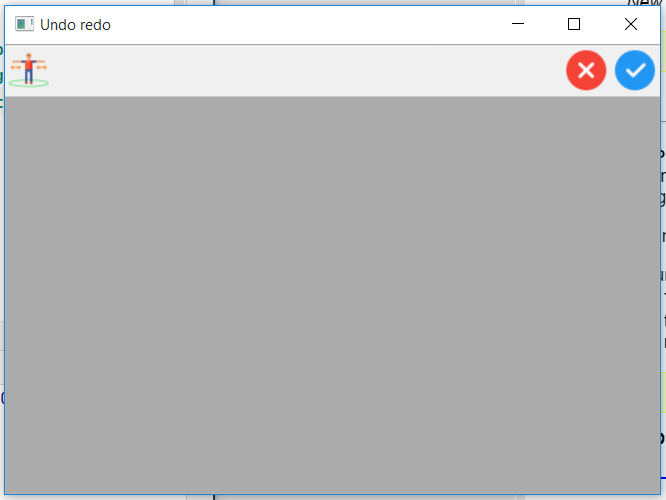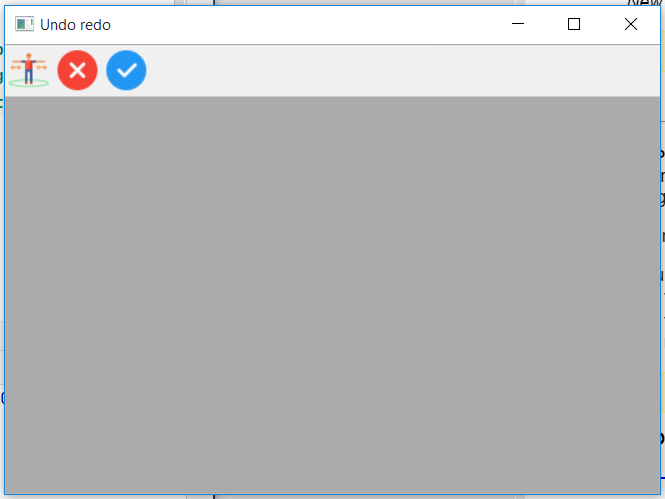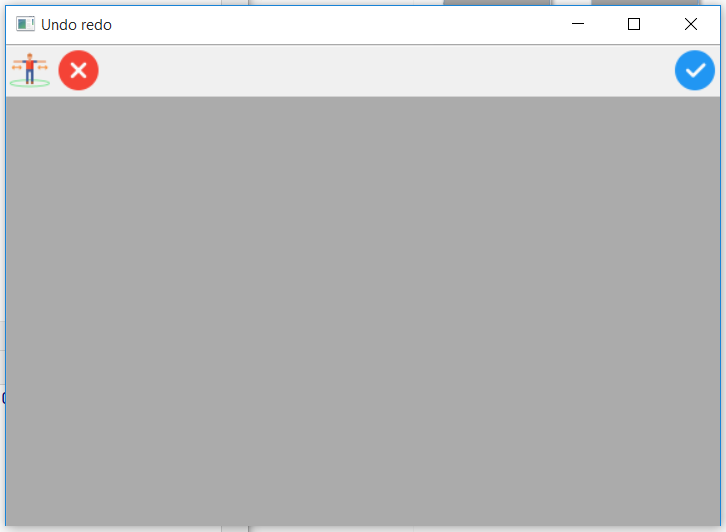wxPython wx.ToolBar中的InsertStretchableSpace()函数
在这篇文章中,我们将学习与wxPython的wx.ToolBar类相关的InsertStretchableSpace()函数。InsertStretchableSpace()在给定的位置插入一个可伸展的空间。注意,变化将在调用Realize()后发生。它只接受pos作为参数。
语法。
wx.ToolBar.InsertStretchableSpace(self, pos)
参数:
| 参数 | 输入类型 | 描述 |
|---|---|---|
| pos | int | 要添加的工具的位置,从0开始。 |
返回类型。
wx.ToolBarToolBase
代码实例1。
import wx
class Example(wx.Frame):
def __init__(self, *args, **kwargs):
super(Example, self).__init__(*args, **kwargs)
self.InitUI()
def InitUI(self):
self.locale = wx.Locale(wx.LANGUAGE_ENGLISH)
self.toolbar = self.CreateToolBar()
td = self.toolbar.AddTool(1, '', wx.Bitmap('sep.png'))
te = self.toolbar.AddTool(2, '', wx.Bitmap('wrong.png'))
tf = self.toolbar.AddTool(3, '', wx.Bitmap('right.png'))
self.toolbar.Realize()
self.Bind(wx.EVT_TOOL, self.OnOne, td)
self.SetSize((350, 250))
self.SetTitle('Undo redo')
self.Centre()
def OnOne(self, e):
# insert stretchable space b / w separate
# and tick tool at position 1
self.toolbar.InsertStretchableSpace(pos = 1)
self.toolbar.Realize()
def OnQuit(self, e):
self.Close()
def main():
app = wx.App()
ex = Example(None)
ex.Show()
app.MainLoop()
if __name__ == '__main__':
main()
输出:
在点击独立工具之前:

点击独立工具后:

代码示例1:
import wx
class Example(wx.Frame):
def __init__(self, *args, **kwargs):
super(Example, self).__init__(*args, **kwargs)
self.InitUI()
def InitUI(self):
self.locale = wx.Locale(wx.LANGUAGE_ENGLISH)
self.toolbar = self.CreateToolBar()
td = self.toolbar.AddTool(1, '', wx.Bitmap('sep.png'))
te = self.toolbar.AddTool(2, '', wx.Bitmap('wrong.png'))
tf = self.toolbar.AddTool(3, '', wx.Bitmap('right.png'))
self.toolbar.Realize()
self.Bind(wx.EVT_TOOL, self.OnOne, td)
self.SetSize((350, 250))
self.SetTitle('Undo redo')
self.Centre()
def OnOne(self, e):
# insert stretchable space b / w tick and cross tool at position 2
self.toolbar.InsertStretchableSpace(pos = 2)
self.toolbar.Realize()
def OnQuit(self, e):
self.Close()
def main():
app = wx.App()
ex = Example(None)
ex.Show()
app.MainLoop()
if __name__ == '__main__':
main()
输出:
在点击独立工具之前:

点击独立工具后:

 极客教程
极客教程